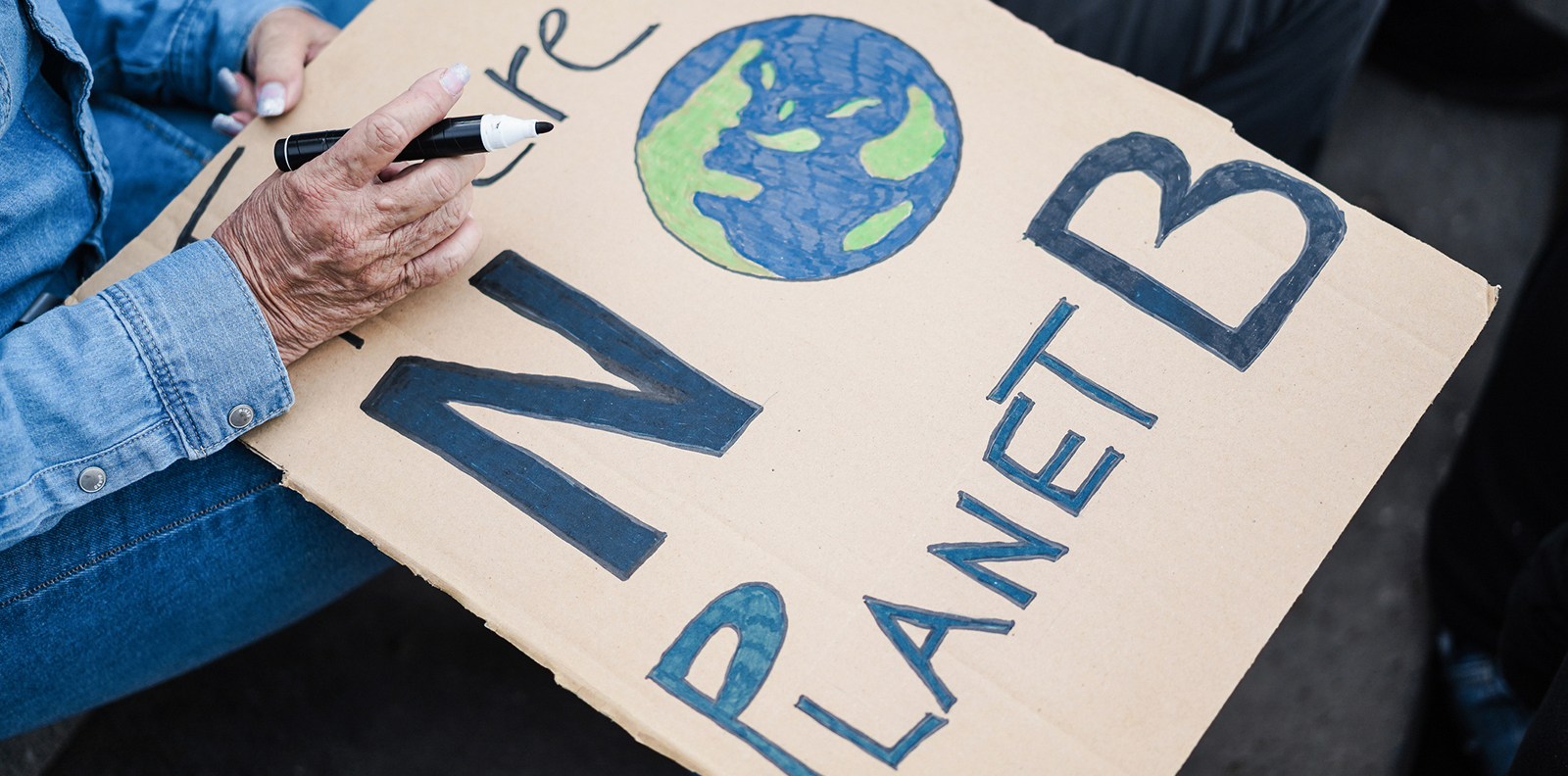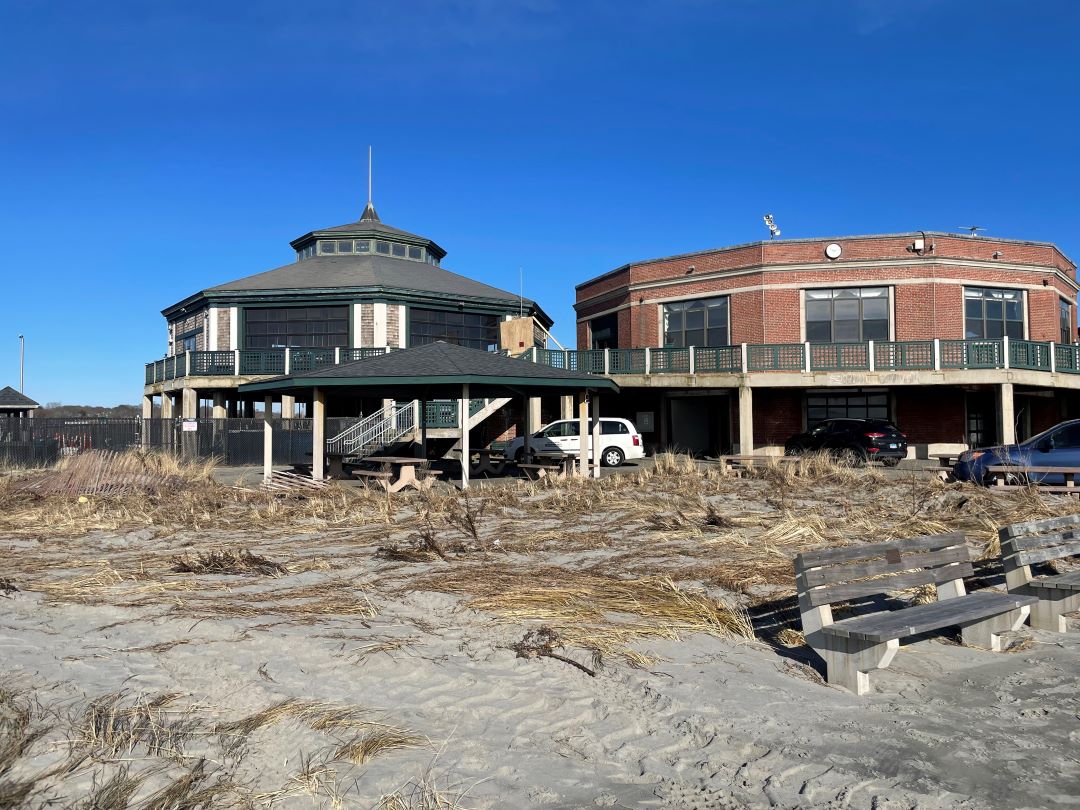Prepare or Panic: URI Professor’s Advice for Addressing a Global Pandemic and the Climate Crisis
Will response to coronavirus pandemic trigger widespread climate action?
April 4, 2020
The response to the novel coronavirus pandemic offers little in the way of a roadmap to solve the climate crisis, according to a University of Rhode Island professor, but there may be some valuable lessons to be shared.
James Prochaska, director of the Cancer Prevention Research Center at URI, said the two global emergencies are too different to share a model for success.
“One (crisis) is much more immediate and the other is 10 to 12 years from now,” Prochaska said.
The professor of clinical and health psychology is well known for creating a system-of-stages model showing the progression that leads to changes in behavior, such as quitting smoking or exercising regularly.
Although COVID-19 and the climate crisis require global solutions, the pandemic has created urgent and immediate health and economic needs that impact the planet’s entire population now.
The climate crisis, on the other hand, requires near-term action, but the impacts aren’t being seen and felt by all people, all at once. And the benefits from that action, such as curbing greenhouse-gas emissions, may take years to be appreciated.
“Immediate consequences are much more effective in changing behavior,” Prochaska said.
To much of the public, the coronavirus instills a sense of helplessness, a feeling that can be addressed with a small number of direct actions that yield immediate results, such as staying home or wearing a protective face mask.
“Folks will change behaviors now if it will help now,” Prochaska said.
Without the obvious cause and effect, the climate crisis requires a more complex series of solutions, Prochaska said. Some will need to be led by government, such as advancing alternative modes of transportation and electrifying the heating sector.
Individuals can help solve the climate crisis by voting for environmental advocates and supporting mitigation policy. They can reduce health risks by exercising and eating healthy foods. Hope and optimism can be increased by joining groups that collectively advance solutions to the climate crisis.
And rather than appealing to fear, as the current pandemic does, the climate-crisis campaign would do well to promote the advantages of reducing global warming and highlight the benefits to the planet, individuals, and society as a whole, according to Prochaska.
“We should be talking more about the positives,” he said.
He also noted that progress can be made by countering misinformation, and broadening social support for fixing the climate crisis, especially through online platforms.
Scientists theorize that the frequency of virus outbreaks will only increase as natural habitat is displaced by development and human intrusion. Prochaska said he hopes that the current health crisis will bring greater attention to issues such as open-space protection and population control.
Climate experts like Stephan Harrison, professor of climate and environmental change at the University of Exeter in the United Kingdom, say that the coronavirus crisis will, at the very least, increase the public’s scientific literacy.
“People are recognizing that even highly complex societies like the United Kingdom and America are still very vulnerable to shocks from the natural world,” Harrison told Inside Climate News.
Prochaska also hopes that some of the behavior changes created out of necessity by the global pandemic will become common practices for reducing carbon emissions, such as driving less and working and schooling from home. He said this experience will make people better prepared to respond to other emergencies, because, ultimately, the best solution to any crisis starts with robust planning. Reaction and emotion caused by the event itself are less effective and more costly.
“‘Panic or prepare’ is what I’m telling people,” Prochaska said.
Fortunately, when it comes to the climate crisis, planning is happening in Rhode Island at both the state and local levels, through programs led by URI’s Coastal Resources Center, the Coastal Resources Management Council, and the Narragansett Bay National Estuarine Research Reserve. Projects include strengthening shorelines from erosion and restoring salt marshes.
High-risk coastal and riverine communities are receiving grant funding for priority adaptation projects, such as protecting wastewater treatment plants and drinking water systems, through the Municipal Resilience Program run by the Rhode Island Infrastructure Bank. Last year, Providence unveiled its Climate Justice Plan, which focuses on equity and protecting marginalized residents.
The plan, according to Mayor Jorge Elorza, “will require sacrifices for the greater good of our planet and our society and we need everyone to be a part of the solution.”



